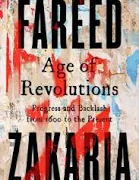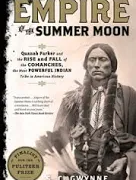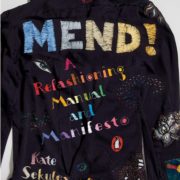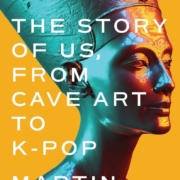Rogues: True Stories of Grifters, Killers, Rebels and Crooks by Patrick Radden Keefe
If you peruse a public library’s nonfiction section, you’ll eventually wander into a grizzly sector: true crime. Chances are you won’t bump into me there. While “understanding” the psychoses of serial killers is laudable, I can’t shake the horrid end that came to their victims. So, I’ll usually find something else to read, thanks. Still, true crime as a subject encompasses much, and there are some gripping tales out there.
Patrick Radden Keefe knows his way through the genre, writing about political murder in Northern Ireland as well as chronicling one family’s machinations in pushing painkiller drugs that fueled an opioid crisis. His latest book, Rogues: True Stories of Grifters, Killers, Rebels and Crooks, a collection of articles that originally ran in The New Yorker, hooked me straight away.
Wine fraud is a given in the wine-collecting market. Rare wine attracts wealthy collectors, which in turn begets swindlers. Keefe tells us of what happened when one billionaire was duped into buying wine that was purported to belong to Thomas Jefferson. The billionaire, Bill Koch (of Koch brothers fame), made it his mission to seek retribution, spending more for this satisfaction than what he spent on the bogus wine. Entertaining, to be sure. But, to me, Keefe’s exploration of the wine market, where fakes often best originals in tastings, is where the essay thrives.
Also, judging by his wine ledgers, Thomas Jefferson certainly liked to lean into a bottle. According to Keefe, Jefferson “might also have been America’s first great wine bore,” as evidenced from John Quincy Adams’ diary. After one dinner with Jefferson in 1807, Adams noted, “There was, as usual, a dissertation upon wines. Not very edifying.”
There’s an article on Mark Burnett, the man who brought us such television shows as “Survivor” and “The Apprentice,” the latter styling Donald Trump as an icon of business success. It’s yet another stark reminder that there are those who underscore what can be promoted and sold over what is fact. Nothing new there. However, when one assumes the presidency on this marketed foundation, we should all take pause.
Keefe writes of a Swiss bank heist and of an international arms broker. Financial scandals are unpacked, as well as an account of a man seeking justice for his brother, a victim of the Lockerbie bombing. There’s an article on a criminal defense attorney who defends some of the most heinous criminals. Her representation is not to prove their innocence; she’s trying to keep them off death row by humanizing them in the eyes of the jury. Not an easy job, that.
There’s the Dutch gangster who kidnapped Freddy Heineken (of the beer dynasty) for ransom. A more violent gangster is profiled in Joaquín “El Chapo” Guzmán, the former leader of a brutal Mexican drug and money-laundering cartel. Despite their fame, the daily lives of both gangsters read as positively banal, with Guzmán having to change up residences every few days to evade capture. It’s the opposite of glamorous. He and his family tediously schlep their belongings from house to house. (There is, however, an occasional mad dash through a sewer.)
Perhaps the most chilling article concerns Amy Bishop, a neurobiologist who was denied tenure at the University of Alabama. At the next faculty meeting, she shot and killed three coworkers. At first, the story appears to highlight the pressures of academic life. But there is so much more to Bishop’s life story. As dangerous as, say, Guzmán is, his violence emerged from a violent upbringing. With Bishop, however, the source of her murderous ways is not so easily explained.
The last article features Anthony Bourdain, the chef turned writer (a talented one) and television travel host. Keefe states that part of Bourdain’s popularity springs from his circumventing “homogenized tourism.” As viewers, Keefe notes that we are given a “communion with a foreign culture so unmitigated that it feels practically intravenous.” In spite of Bourdain’s image as a rebel, Keefe found him to be “controlled to the point of neurosis…He is Apollo in drag as Dionysus.”
Since these articles were published over a span of 15 years, there are addendums at the end of each. Doubtless, many readers already know that Bourdain committed suicide and that Guzmán is serving time at the supermax prison in Colorado. With each article, Keefe’s writing is a reminder of the value of longform journalism: giving complex stories the space to be thoroughly told and appreciated.
Reviewed by Jason Sullivan











